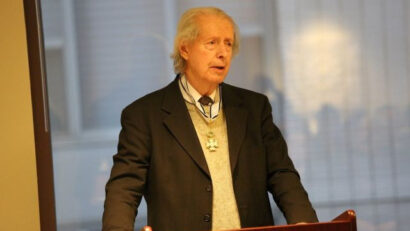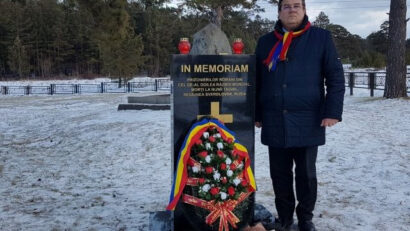
In 1940, General Ion Antonescu and the Iron Guard seized power as the historic parties refused to form a governing coalition with the extreme right

On November 1, 2020, American historian Keith Hitchins passed away at the age of 89.

In the First World War, Romania was an ally of France, England and Russia.

The amount of literature written about propaganda, war propaganda in particular, is impressive.

The most controversial king of Romania, Carol II had the qualities of a leader and carried out important reforms while at the helm of the country.

Epidemics or plagues have always altered the course of human history, causing sufferance and death.

Southern Dobruja, today in northeastern Bulgaria, first became part of Romania in 1913.

On 6 September 1940, the fascist regime led by General Ion Antonescu came to power in Romania

The period of Ottoman advancement into Europe in the 14th and 15th centuries was a period of confrontations and coexistence, rather than a period of open warfare

On June 4th, 1920, the Grand Trianon Palace of Versailles hosted the signing of the peace treaty between the Entente Powers and Hungary

One hundred years ago, Constantin Dobrogeanu-Gherea, the most important Marxist thinker of the 19th century, was passing away in Bucharest.

Romanias embassy in the Russian Federation publishes names of Romanian POWs who died in USSR in WWII.

The European Danube Commission was a model of international cooperation

In June 1940, Romania received from the USSR two ultimatums demanding the provinces of Bessarabia and Northern Bukovina
